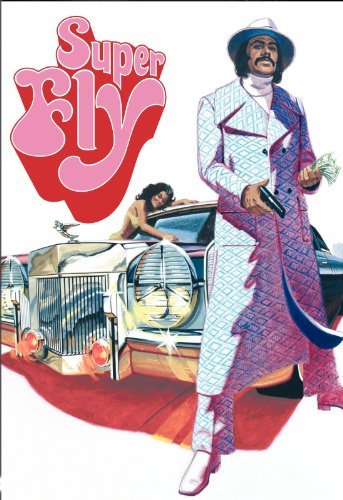
There was a time in America, believe it or not, when the only rolls African Americans could get in Hollywood were the second class citizen’s rolls; you know the maids, servants, and the all too common Step-in Fetch-it kind of rolls. Few blacks were on the screen and fewer worked behind the screen. Then something interesting happened during the 1960s that was like a revolution. I don’t want to date anyone but if you did not witness this cinematic transformation I am going to try to capture the essence of the era.
Hollywood has never, from its conception, view or considered black people as a commodity. They expected all people to watch whatever movies they made and like it, as a result of the government mandated policy of segregation. African American’s in particular simply had no choice. It was so extreme that in most cases black people, if they were allowed, had to sit in the balcony and had a separate entrance into the theater where a movie was shown. Hence, all of the hero’s we knew looked like the people they represented.
Now, as a result of the turbulent 1960s the reflection or the realization of the country changed. This was not due to Hollywood’s interpretation, rather as far as cinema was concerned, it actually began with a low budget independent film called “Sweet Sweetback's Baadasssss Song” in 1971, written, produced, scored, directed by, and starring Melvin Van Peebles. It tells the picaresque story of a poor African American man’s flight from the white authority. Van Peebles began to develop the film after being offered a three-picture contract for Columbia Pictures.
No studio would finance the film, so Van Peebles funded the film himself, shooting it independently over a period of 19 days, performing all of his own stunts and appearing in several unsimulated sex scenes. He received a $50,000 loan from Bill Cosby to complete the project. The film's fast-paced montages and jump-cuts were unique features in American cinema at the time. The picture was censored in some markets, and received mixed critical reviews.
Then came “Shaft” produced and directed by the great Gordon Parks staring Richard Roundtree and was critically acclaimed. The film produced both the Grammy Award and Academy Award winning soundtrack recorded by Isaac Hayes. These were two huge steps in the evolution of black representation on the big screen. After the success of these two films Hollywood saw that there was a spending black audience wanting to see people who looked like them on the screen and they began to exploit the new genre even calling it – Blaxploitation.
This brings me to the third movie that I thought never got its just due, although it is a cult classic today. This movie was Super Fly! It was about a cocaine dealer who begins to realize that his life will soon end with either prison or his death. He decides to build an escape from the life by making his biggest deal yet, converting the coke to cash and running off to start a new life. The problem was that the Mob does not have a retirement plan and will give him a choice of staying and selling for them or dying if they find out his intentions.
The star was the late Ron O’Neal a Tall, lean, handsome veteran stage and classically trained actor, whose role as Priest - the long haired, stylishly dressed cocaine dealer in the seminal 1972 crime drama. The co-stars Sheila Frasier, Carl Lee, Julius Harris, and of course we all know Freddie – Charles McGregor; all producing stellar performances. I would be remised if I did not mention the great Curtis Mayfield who wrote the hit score. I did a little research and found a back story that speaks to the tremendous efforts of the producers and all involved.
Most surprising was that the script was only 45 pages long, which explains why there are so many shots of people walking, driving, etc. The reason I wanted to share this story is because I recently rented the movie and got an entirely different impression of the film than I did thirty years ago. It was not unlike people today where people are involved in illegalities which is not because, often time, a result of choice.
The moral of the story was not the cocaine dealer rather, considering the era, people coming together to break new ground when all odds were against them. I have added a few video clips for you to view and judge for yourself. And that’s my Thought Provoking Perspective…
THE ORIGINAL TRAILER
THE BACK STORY
Make these books the gift that keeps on giving.










No comments:
Post a Comment